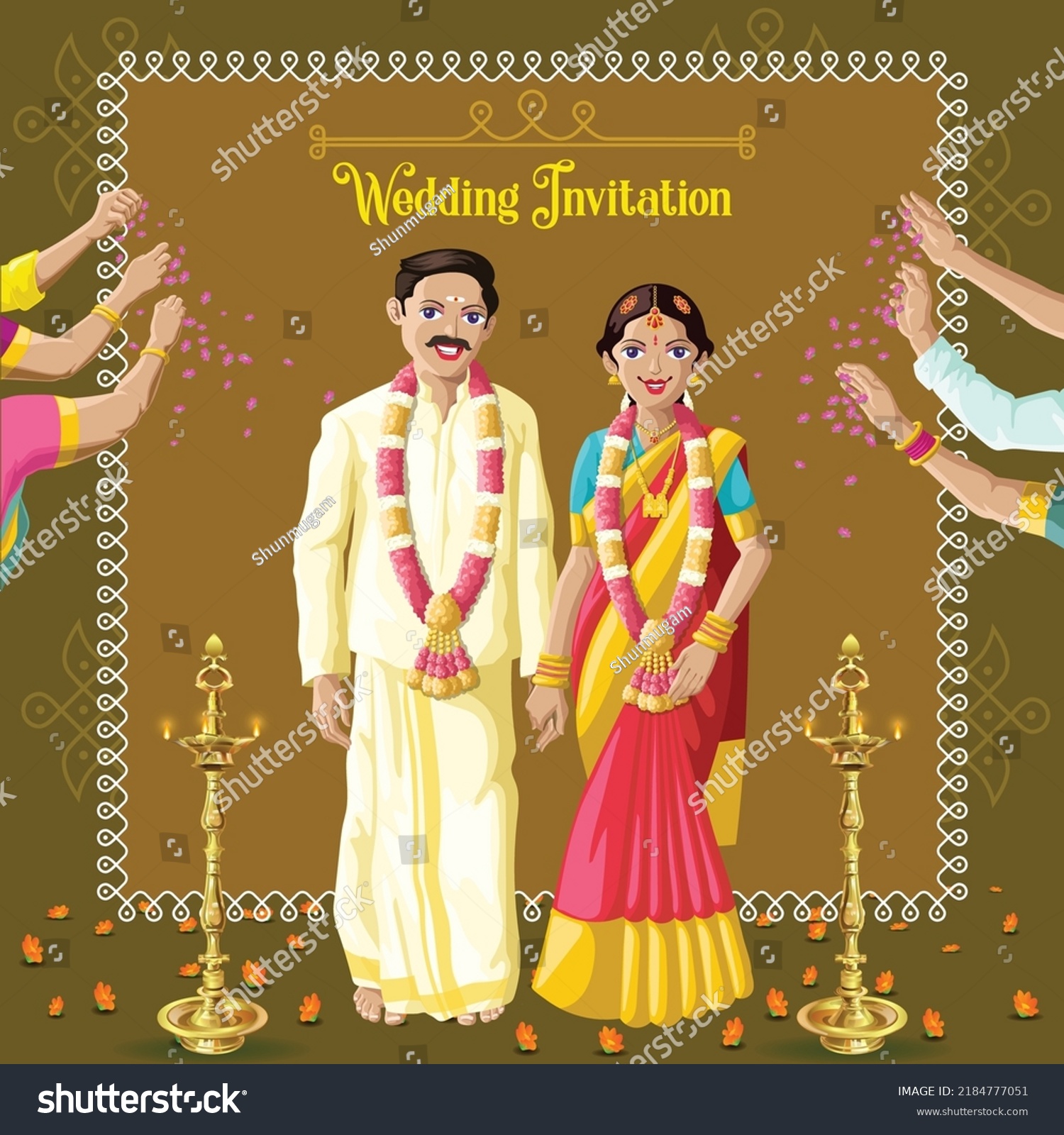The door opened, and the josyar walked out, the tuft of coiled hair sitting stiff on the back of his head.
Our eyes trailed him anxiously till he left: Me in my veshti and shirt, restless in the unfrequent attire, Maragadam from between her parents, sitting on mismatched plastic chairs.
The freshly made jasmine garland that hung over the photo of my long-dead mother swayed in the fan breeze. The smell of strong decoction emanated from the kitchen, as my patti, in her worn-out saffron sari, poured boiling water over the freshly powdered coffee powder heaped into the old brass filter brought out for the special occasion.
All eyes turned toward my dad when he came out of the room, his expressions unreadable. Patti hurriedly put the stove off, placed a lid over the milk, and took up her usual position behind the kitchen curtain, adjusting the sari edge to fit over her head.
My dad, his back stern and uncompromising, hesitated briefly, his eyes flying from Maragadam to me, and pronounced, “The jadagams don’t match. This marriage cannot happen.”
Maragadam stopped fiddling with the sari, her discomfort forgotten and looked rebellious. Her parents exchanged horrified glances, whispered to each other, and finally, her mother asked hesitatingly, “Mama, can’t we compromise a little on the mismatch of the horoscopes? They live far away from us, in the USA. They could have secretly married there. Instead, they have come home to take our blessings. Maybe they will live happily even if the jadagams don’t match.”
My dad turned his agonized eyes toward her and whispered, his voice filled with torment, “Not if my son is dead and gone. The josyar says that Maragadam has widowhood written in her horoscope if this marriage happens.”
I could hear Patti gasping from behind the curtains. I am sure her mind is preying on how she lost her husband when my dad was only two. Or maybe she is thinking of my mom, who died when I was a toddler.
Maragadam’s dad planted his hands over his ears and muttered, “Siva Siva.”
My dad’s eyes misted. He looked at Maragadam and spoke kindly, “We would have been happy if you both married and could join our family. But we are helpless. We have always followed the custom of matching horoscopes, and I can’t go against it.”
There was utter silence. The constant whirring sound of the fan dominated the room. A scooter honked its way noisily on the road outside.
Suddenly I saw Patti step into the room and lay a hand on my dad’s shoulder. Patti, who never crossed the kitchen boundary when there were guests and never gave her opinions, called out to my dad, her voice soft but firm.
“My son, do you know mine and your father’s jadaga-poruttham was an 8/10? And when I matched the horoscopes for your marriage, I wouldn’t settle for anything less. But did the 8/10 stop both our spouses from dying?”
There was a stunned silence. Everyone’s eyes were on Patti as she continued to speak with conviction.
“Matching Jadagam was the first step in matrimony when there were no chances for the girls and boys to meet personally. It was suitable when a girl’s worth was decided by how well she would adjust to the new family and how soon she would produce heirs. But now things have changed. When the kids marry, they are looking for companions. Their concerns are about their jobs, where they live, and hobbies. Are there kattams in the horoscope to show if someone likes music? Or travel? Or cricket?”
Maragadam’s dad’s voice piped up thoughtfully, “Mami, if we had not consulted a josyar, I would have agreed to what you are saying. But now that he has predicted this catastrophe, will it not hover over our lives? Will it not be a source of constant worry for the kids?”
“In my case or my son’s, did the 8/10 succeed in stopping the deaths? So, why don’t we place our trust in God, who is more powerful than any man-made customs, and proceed?”
“But amma… It’s our Ramu’s life. What if something happens to him after they marry? Also, think of Maragadam. Will the girl not be deprived of a happy life?”
All eyes turned towards us.
Maragadam’s voice sounded deep and thoughtful. “In the USA, some of our Indian friends have married, choosing spouses for themselves, and a few have had their families selecting the companions. Some marriages have failed, but there are many happy ones. I think the deciding factor of success is the maturity and understanding the couples bring to the marriage than pairing horoscopes or any other traditional forms of matchmaking.”
Father’s voice sounded doubtful. ” I don’t know… For the families, both of you are precious. Our only concern is your safety and happiness. We are putting the ball in your court. Please make an informed decision.”
I did not hesitate. “With due respect to the family, just like the older generation set a precedence to matching horoscopes, Maragadam and I would like to take the lead to prove that you don’t need the ‘jathaka-porutham’ to lead a happy life. We have always claimed to be forward-thinking. We would like to prove it by boldly going ahead despite the grave and disastrous prediction and hope to prove it wrong.”
Maragadam smiled at me and stepped up to hold my hand.
Patti’s voice returned to its chastizing mode as she turned towards the others, “What are you guys waiting for? Hurry up. We have a wedding to organize.”
The End
Glossary
Josyar: An astrologer
Jadagam: Horoscope
Jadaga porutham: There is a scorecard when the horoscopes are matched to get two people married. Any score of 6 or above signals that they are well-matched.
Custom:
In South India, it’s customary for marriages to be based on matching horoscopes. Usually, horoscopes are made as soon as a baby is born, based on the time and place of birth. An astrologer matches them to check if the couple is compatible, and a marriage between them will be successful.
[zombify_post]








